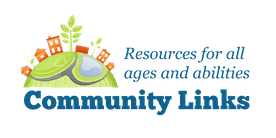As some parents who have children with disabilities know, letting others help with their child’s personal care can be challenging, but it can be an invaluable teaching tool for children when they are on their own. It is vital, I think, that a child and his or her caregiver has an amicable relationship and has mutual respect for one another. If that is achieved, doors can be opened to your child that may not be thought possible otherwise. I think that my experience is proof of that.
Until my college years, my grandparents took care of my personal care needs and anticipated everything I needed or wanted. While this was wonderful, this didn’t prepare me for the world at large. After high school, I was drawn to St. Andrews Presbyterian College, located in North Carolina, mainly for its Creative Writing major, so I applied there and was accepted.
While St. Andrews Presbyterian College had a great academic program, it certainly lacked sorely in personal care. Some of the attendants were unwilling to take the time to understand my communication method. They did not wait for the tedious process of me communicating through my speaking device, then a Liberator, or understanding my communication board. Instead, they just walked away. Although I had experienced this before from the outside world, the constant frustration wore on me. After three years, the strain was too much, so I went home.
Although my experience at St. Andrews Presbyterian College was a tough one, it also taught me the value of speaking up for myself. I realized that although I may be non-verbal, that did not mean that my voice cannot be heard. I came to the conclusion that I could direct my personal care, but I had to make the effort to gain the respect of my care attendants and have a relationship with them.
The personal care system that I have today is a wonderful one, and it is a carryover from when I was a student at Messiah College. Before I applied, the Director of Disabilities said that I could live on campus in a dorm with the help of personal care attendants. With the aid of United Cerebral Palsy, I was able to obtain caregivers who were right for the job.
Throughout my experience at Messiah College, a personal assistant was always there, helping me to get ready for the day in my dorm room, voicing my thoughts in the classroom, taking notes, and generally making sure my post-secondary adventure ran smoothly. All of my attendants had the ability to communicate with me, which made a world of difference. There, I had the chance to relish the joy of learning, rather than worrying about communication issues.
Today, having care attendants has opened a whole new world for me as I said before. They help me with the simplest of tasks—with the large and small things that happen in my everyday life. From personal care to taking extended trips, they certainly enable me to live life at its fullest and allow me to live as independently as possible.
As you can see, having personal care assistants has made a world of difference in my life and I can’t imagine life without them.
-Hope Johnson

